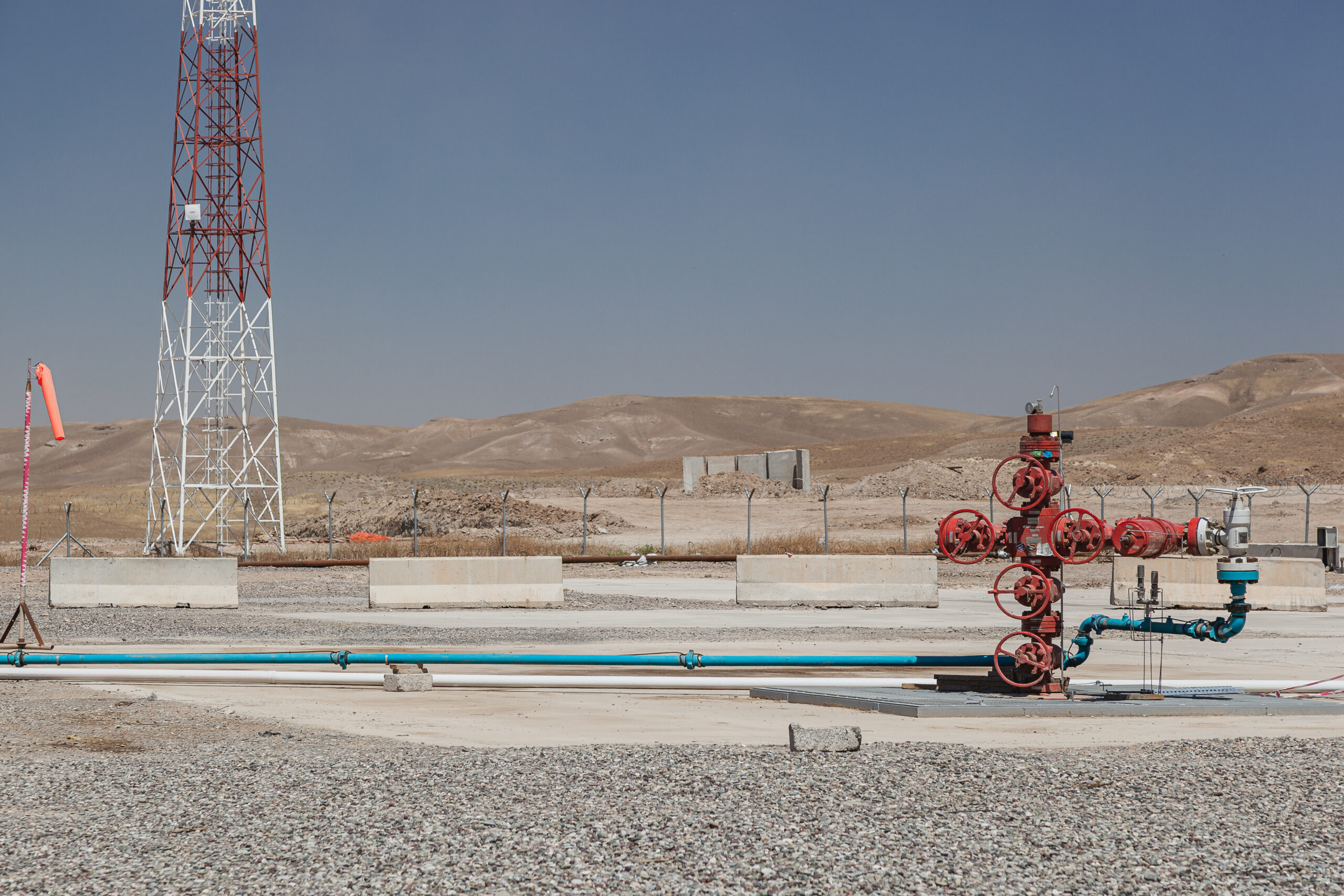Nuns want Citigroup to report Indigenous rights violations
A shareholder resolution filed by a Catholic religious order would require the U.S. banking giant to report how its financial relationships with oil and gas companies may lead to Indigenous Rights violations.

A Catholic religious order of nuns has filed a shareholder resolution ahead of Citigroup’s upcoming annual general meeting, a measure that if passed would require the bank to report on its financial relationships with oil and gas companies that lead to Indigenous rights violations.
The Sisters of St. Joseph of Peace, a Catholic religious order made up mostly of nuns, has called out Citigroup for its ties to Canadian pipeline company Enbridge, which owns the Line 5 oil pipeline and recently built the Line 3 pipeline. Both pipelines cross Indigenous lands in the U.S. Midwest, with multiple tribes alleging violations of their rights from the projects.
Previously, Citi also helped finance the Dakota Access pipeline, one of the most high-profile oil pipelines in the country, which was built despite intense opposition from the Standing Rock Sioux. In 2016, police and private security violently suppressed the Indigenous-led resistance to the construction of the pipeline. Citi executives later admitted the approval of financing for the pipeline was done too quickly and they wished they could get a “do-over,” that’s to say, that they could have another attempt.
The pipelines are prominent examples of how Citigroup has “enabled” violations of Indigenous rights, says Jillianne Lyon, programme director of Investor Advocates for Social Justice, which is representing the nuns and their co-filers in their shareholder resolution. The pipeline projects are “indicative of a systemic issue in the bank’s current policies, practices, and performance indicators,” Lyon told Gas Outlook. The religious groups own shares in Citigroup.
The resolution notes that Citi has provided more than $5 billion in financing to Enbridge between 2016 and 2020, allowing the company to replace and expand its pipeline systems.
In 2021, Enbridge finished its Line 3 pipeline, replacing an ageing line. The new pipeline effectively doubled the old system’s capacity, bringing throughput up to 760,000 barrels per day. Line 3, which brings Canadian oil sands from Alberta to the U.S. state of Minnesota, was the subject of intense opposition from Native American tribes and their allies, leading to crackdowns from police and hundreds of arrests.
The Line 5 system carries both crude oil and natural gas liquids that originate in Alberta through two “twin” pipelines across the U.S. states of Wisconsin and Michigan, terminating just across the international border at a major oil and petrochemical hub in Sarnia, Ontario. The Line 5 pipelines, which run more than 1,000 kilometres, are also ageing and Enbridge wants to build a replacement. The government of Michigan is attempting to shut down Line 5 because of the environmental risk of a potential spill.
The shareholder resolution filed by the Sisters of St. Joseph of Peace would require Citigroup’s board to report on the effectiveness of the bank’s policies, practices, and performance indicators in respecting Indigenous rights. The resolution will be voted on at Citi’s meeting on April 25.
Citi has urged shareholders to reject the resolution, arguing that it is “unnecessary” because it already has policies in place that are sufficient. Citi adheres to the Equator Principles, a risk management framework for financial institutions to assess and manage environmental and social risk, and the bank notes that it already strengthened its policies since 2018 around Indigenous rights.
“Due to Citi’s ongoing efforts to implement industry good practice in human rights due diligence and provide robust disclosure on our human rights risks and our policies and practices to address those risks, Citi believes that it has substantially fulfilled the primary concerns outlined in the Proposal,” the bank wrote in a proxy statement.
Additionally, Citi says the $5 billion in support for Enbridge, cited by the nuns, is “untrue.” The bank notes that did not provide any project-related finance to the Line 3 pipeline, and instead has a general corporate finance relationship with Enbridge.
But that misinterprets the resolution, says Lyon, the representative of the Sisters of St. Joseph of Peace, who described Citi’s distinction between project-specific finance and general corporate finance as not meaningful.
“A big issue that we are facing this year is banks trying to argue that there is a significant enough difference between project-specific finance and general corporate finance…that they are not tied to these projects,” Lyon said. “It’s a difference in semantics. There is a bit of difference in the technical execution, but the end result is the same — banks like Citigroup are enabling these projects,” Lyon said. Even though Citigroup did not directly finance or lend to the Line 3 pipeline, it’s general financial arrangements with Enbridge allows the company to finance the expansion, she said.
Lyon pointed to a 2018 report from the Sightline Institute, a sustainability think tank, that concluded that if major banks had cut ties with Enbridge, the pipeline company would have faced the possibility of having to abandon the Line 3 pipeline.
And despite many environmental and social commitments by major financial institutions, enormous pools of capital still flow into oil and gas projects. “Here we are in 2023, and we are seeing the same types of projects, just like the Dakota Access pipeline, continuing to be enabled by banks,” Lyon said.
Citigroup did not respond to a request for comment from Gas Outlook.
Shareholder activists pressure banks
Fossil fuel projects are “inherently tied to things like deforestation, biodiversity loss, Indigenous rights violations, pollution and corruption and exacerbation of the climate crisis,” Lyon told Gas Outlook. “They are very interconnected.”
The nuns’ efforts to sway Citigroup is one of many such shareholder activist campaigns by religious, climate, and human rights organizations targeting banks’ ties to the fossil fuel industry playing out at this year’s corporate annual general meetings.
Stop the Money Pipeline, a coalition of over 200 organizations, recently launched its “Shareholder Showdown” campaign, aimed at pressuring major banks to rule out new financing for the oil and gas industry and stop supporting projects and companies that could be causing Indigenous rights violations.
The campaign notes that the six largest American banks — JP Morgan Chase, Citigroup, Bank of America, Wells Fargo, Morgan Stanley, and Goldman Sachs – provided nearly $500 billion in financing for fossil fuel expansions since the Paris Climate Agreement was signed at the end of 2015.
Meanwhile, new research shows that such divestment campaigns may actually have a material impact on the market value of major energy companies. A study by Solvay Brussels School of Economics, Stockholm School of Economics and Harvard Law School found that when divestment campaigns went viral online, the stock price of the targeted company and its peers fell.
The findings are notable given that a common retort to divestment campaigns is that they have little practical impact. But the study’s authors find that “by stigmatising target companies,” campaigns can change the “economic narrative,” which results in “increased stranded asset risk.” They added that “divestment induces risk averse investors to decarbonise their portfolios, further reinforcing the narrative.”
For example, in 2018, the Irish parliament voted to divest from fossil fuels, coinciding with a 3 percent decline in the value of large U.S. oil and gas companies. The slump was not merely the result of the Irish parliament unloading shares, but rather the broader impact stemming from the message the move sent — sending a signal of “social and political change,” as the FT recently reported, covering the divestment study.
It remains unclear if the resolution filed by the Sisters of St. Joseph of Peace will pass or if it will have a similar impact. The nuns filed a similar resolution last year ahead of Citigroup’s annual general meeting, garnering about 33 percent of support. Lyon said she is “optimistic that we’ll gain even more support this year.”



